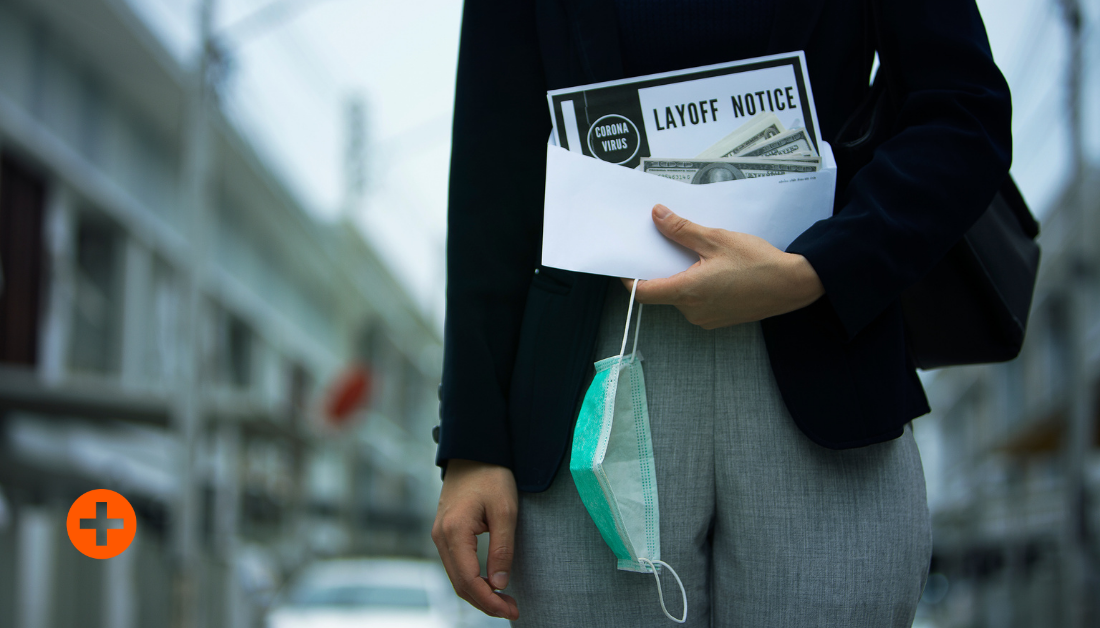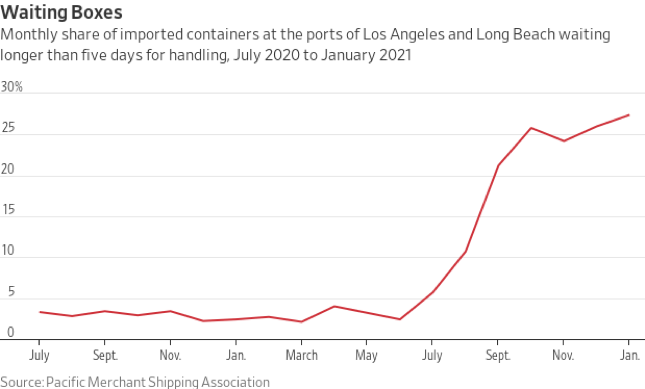
Published on March 25, 2021 / Leer en español
In This Issue
Puerto Rico’s healthcare system depends to a large extent on federal funding through the Medicaid program. Yet the island, as well as other U.S. territories, are hampered by an inconsistent and discriminatory federal healthcare funding process. In our first piece, Rosanna Torres outlines how Congress and the Biden administration can fix the “Medicaid cliff” problem once and for all.
Our second piece helps us answer questions such as: what can we learn from the European experience about integrating social safety net programs and incentives to encourage labor force participation?; and what policies and programs have been successful in both protecting socially and economically vulnerable populations without penalizing entry into the labor force? Jennifer Wolff writes about best practices in Europe and the new proposal by the E.U. to support employment and social assistance.
Finally, our Data Snapshot takes a look at the increase in shipping logjams that are projected to continue into the summer.
Insights + Analysis from CNE

Pandemic Exposes Fragility of Puerto Rico’s Health Care System
By Rosanna Torres – Director, Washington, D.C. Office
In seven months, Puerto Rico faces an imminent threat to its healthcare system: lack of sufficient funds to operate. This is not unusual for Puerto Rico nor any of the other U.S. territories. That is because the way funding is provided to the islands is not based on programmatic needs; rather funding is a cyclical reaction to a structural underfunding of the Medicaid programs.

The Debate Over PUA and the Post-COVID Return to Work: A False Dichotomy?
By Jennifer Wolff, Ph.D. – Director, Madrid Policy Bureau
The recent public discussion in Puerto Rico over the Pandemic Unemployment Assistance (PUA) and the post-pandemic return to work seems to put social assistance benefits in conflict with participation in the labor market. Both, however, need to be seen as related: their interplay requires a fine calibration exercise. I would like to focus on one example: the Minimum Income, Insertion Rent or Social Solidarity Income, a cash benefit that many countries in Europe disburse to at-risk low-income households and that interacts with other measures that seek to encourage the attachment of economically vulnerable adults into the labor market.
Data Snapshot
Shipping Logjams

Source: Wall Street Journal
According to Costas Paris, writing for the Wall Street Journal, “logjams at U.S. ports are spreading beyond Southern California’s choked gateways, and shipping officials are projecting the backups will continue into the summer. Delays that have stretched from docks to rail yards, truck terminals and distribution centers have rattled supply chains for companies from big auto manufacturers to mom-and-pop retailers, straining assembly lines because of parts shortages and leaving store shelves empty…”
On Our Radar...
![]() U.S. – China Relations – “The United States must forge a relationship with China defined by an uncomfortable and undeniable paradox: deep and complex interdependence on the one hand and rapidly diverging interests—regarding security, economics, technology, ideology, and more—on the other. Policymakers are questioning many of the fundamental ideas that once guided American policy, including the convergence of economic and political goals, the value of engagement, and the idea that cooperation can ameliorate competition and produce stability”, writes Evan Medeiros in Foreign Affairs.
U.S. – China Relations – “The United States must forge a relationship with China defined by an uncomfortable and undeniable paradox: deep and complex interdependence on the one hand and rapidly diverging interests—regarding security, economics, technology, ideology, and more—on the other. Policymakers are questioning many of the fundamental ideas that once guided American policy, including the convergence of economic and political goals, the value of engagement, and the idea that cooperation can ameliorate competition and produce stability”, writes Evan Medeiros in Foreign Affairs.
![]() COVID and School Openings – A study recently published in The Lancet, a medical journal, monitored COVID cases among nearly 20,000 students and teachers from 131 primary schools in the U.K., between June 2020 and December 2020. The researchers found very low rates of either symptomatic or asymptomatic COVID even after schools were reopened in the autumn. However, this was before the widespread emergence of B.1.1.7 (variant first identified in the U.K.) and other SARS-CoV-2 variants, and the researchers suggest that further monitoring is needed to see how the variants affect transmission among schools.
COVID and School Openings – A study recently published in The Lancet, a medical journal, monitored COVID cases among nearly 20,000 students and teachers from 131 primary schools in the U.K., between June 2020 and December 2020. The researchers found very low rates of either symptomatic or asymptomatic COVID even after schools were reopened in the autumn. However, this was before the widespread emergence of B.1.1.7 (variant first identified in the U.K.) and other SARS-CoV-2 variants, and the researchers suggest that further monitoring is needed to see how the variants affect transmission among schools.
![]() Tackling Inequality – According to James Politi, writing for the Financial Times, “Joe Biden’s $1.9tn stimulus bill is mainly intended to speed up the American recovery from the pandemic. But it has a secondary goal: to make the world’s largest economy more equitable. The huge new injection of US government spending, involving large-scale transfers directly targeted at low- and middle-income families, marks the White House’s first stab at reducing income inequality and poverty — entrenched problems that have been exacerbated since the coronavirus hit.”
Tackling Inequality – According to James Politi, writing for the Financial Times, “Joe Biden’s $1.9tn stimulus bill is mainly intended to speed up the American recovery from the pandemic. But it has a secondary goal: to make the world’s largest economy more equitable. The huge new injection of US government spending, involving large-scale transfers directly targeted at low- and middle-income families, marks the White House’s first stab at reducing income inequality and poverty — entrenched problems that have been exacerbated since the coronavirus hit.”
Note from the Editor
The local press has reported recently that some workers who were laid off during the pandemic are allegedly refusing to come back to work, presumably because they make more money receiving expanded Pandemic Unemployment Assistance benefits than by working 40 hours a week. These reports led to a press conference by the Puerto Rico Secretaries of Labor and Economic Development, where they announced the creation of a web-based portal that will allow employers to report those employees who ostensibly refuse to work and to cut-off their benefits.
We believe this punitive policy, even if mandated by the federal government, is ill-conceived for several reasons:
- First, it appears the policy announcement was made solely on anecdotal evidence, as neither secretary had any data about how many workers are “refusing” to work or which industries are being affected.
- Second, perhaps not all workers can return to their jobs right now because they are taking care (1) of their children at home (90% of public schools in Puerto Rico are still closed) or (2) of elder adults (perhaps their parents) who need their help during these difficult times.
- Also, if a person can make more money receiving unemployment benefits than working full time, then the problem is that wages are low, not that unemployment benefits are high. Indeed, if the choice is between earning $290 a week (40 hours at $7.25) at a job, with no marginal benefits and little opportunity for career advancement, or receiving close to $500 a week in unemployment benefits, the economically rational decision is to take the unemployment benefits.
- Furthermore, there appears to be a double standard at work here. If the complaint is that low-income workers are somehow harming society because they are “gaming the system” or unfairly free-riding by getting an income without working when they are able to do so, then the same rule should apply to able-bodied wealthy individuals who are also able and unwilling to work but receive all sorts of tax-favored passive income. From a social perspective, the free-riding problem in both instances is the same.
- Finally, the announced policy is unnecessary in light of the recently enacted American Rescue Plan Act, which included $600 million to match a Puerto Rico Earned Income Tax Credit (“EITC”) in a 3 to 1 ratio. The EITC is a refundable tax credit that works as a wage enhancement without increasing the costs to the employer. It is deemed to be the most effective anti-poverty program in the United States, it promotes work in the formal economy, requires filing a tax return, and reduces dependence on welfare programs. Perhaps we should try it.
